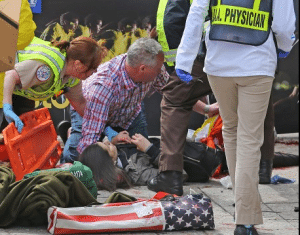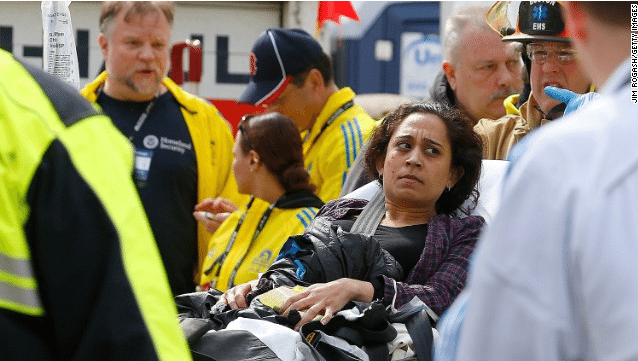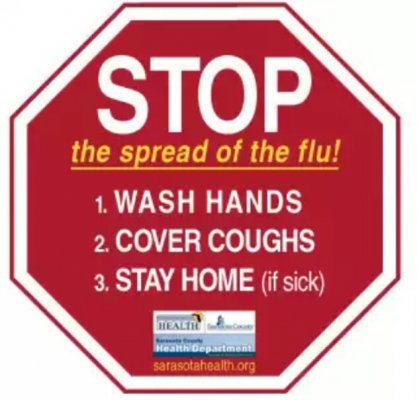 Walking around in the aftermath of yesterday’s tragedy I heard people say over and over, “I can’t believe this happened here in Boston.”
Walking around in the aftermath of yesterday’s tragedy I heard people say over and over, “I can’t believe this happened here in Boston.”
Most tragedies seem distant and removed.
Until tragedy lands on our front door.
For those of us who have ever considered Boston to be home, yesterday’s explosions shook many to the core. The normal reaction is shock, anger, even numbness. It feels surreal that terror of this magnitude came so close. As the American Psychological Association states, “shock and denial are normal protective actions” after a traumatic event.
Today Everything Feels Normal
Walking through Downtown Crossing and into the Financial District this morning, it was hard to imagine the horror of yesterday’s events in the regular activities occurring today. It was business as usual.
Tourists clicked cameras and walked along the streets. Business people walked quickly down the streets. Phones were out, businesses were open. The usual suspects were on the corners asking for money. Students gathered to study and sip coffee. In Starbucks, a financial advisor counseled the woman sitting next to me on the best way to reallocate funds. I walked past a mailman, hands full of mail and packages. Checking my phone, I noted my landlord had emailed a request.
Life goes on. Part of the strength of the people in this country is our ability to be resilient, to cope, to go on.
As my own mentor told me recently; “Sometimes life is not about being successful at living. It’s about continuing on.” I was going through a personal trial, the kind that defines the rest of your life- how it’s lived out, what happens next.
As a city, Boston is also at the place of crisis: the explosions at the Boston Marathon will define every event that ever happens again. No marathon will ever go on in the same way, perhaps even with the same joy. Everything has changed.
When a crisis hits a city, such as yesterday’s explosions hit Boston, people stop. Yet while we stop momentarily, all of us tend to move on quickly if we are not directly touched by the tragedy.And I suppose the cynics among us, even in us, argue that trouble and tragedy is the common problem of modern humanity. Explosions in cities, shootings in towns, a shaky economy, earthquakes, floods, blizzards, and hurricanes are among the tumultuous events that hit us corporately.
Add to that personal trials of financial struggles, relational struggles, health crisis and the other difficulties and the only alternative to giving up in despair may be to continue on.
As I reflected on yesterday’s events – I was standing at the site of the explosion a mere 75 minutes before it occurred- I couldn’t get the phrase out of my head, how now shall I live? In the middle of the crazy times we are in, learning to live in response to these events rather than in spite of them seems to be a healthier, saner way to live.
So while we continue on in strength and resilience, let’s not forget to take time to reflect and heal.
Ideas on Healing and How to Continue on After a Tragedy
• Allow adequate time to feel and to heal.
It’s o.k. to be sad and grieve, even if we were not personally affected by the event.
We are in such a rush to get better and back to “life as normal” in the Western world. From insurance mandated hospital stays to treating illness with over the counter meds and powering through a cold, we are in a rush to get better.
There is no cookie cutter way of responding to traumatic events. According to the American Psychological Association, some people will respond right away and others will respond after time has passed. Some individuals grieve for an extended period of time and others move through grief quickly.
What is important is to be aware of ourselves and sensitive to others.
• Slow down, even for 5 minutes a day
Self-awareness and awareness of others can be difficult in the middle of noisy, busy life. But slowing down helps, even if beginning a “quiet time” for a mere 10 minutes a day. Turn off the electronics and breathe.
Be aware that extreme mood swings, increased irritability and feeling “off” may all be signals from the brain, body and heart that all is not well and restoration is needed.
• Don’t forget to remember
Remembering keeps us sane. Remembering is part of learning.
Remember those who have been injured. Don’t ignore the headlines. Don’t forget to remember those who suffer. Sometimes there is nothing we can physically do. Perhaps, even if we were not directed affected by yesterday’s tragedy, we can do this: extend a bit of kindness to those around us today.
• Share a meal with people you care about.
People who sit down and share meals together live better. Schedules are crazy and even sharing a meal once a day may be hard for families. Do it as the schedules allow. For singles, is it feasible to prioritize cooking and eating with a group of friends once or twice a week? The healthy habit of breaking bread is so much more than the physical food. It’s about what happens in our hearts and minds and souls.
One of my favorite phrases is, “Be kind. Everyone is facing a battle.” Indeed. The battle may be tangible, palpable, and able to be described in words- as in the betrayal of a friend or the diagnosis of cancer. Or it may be more subtle, yet just as potent- increasing fear and anxiety, a shorter tolerance, an inability to cope with today’s problems.
You can continue on. I can continue on. As I watch families laugh together and businesses set up shop, I am once again admirable of the American people who continue on despite the fact a terrorist(s) attempted to stop us from doing so yesterday.
As we continue on, may it be with greater care for one another- and ourselves.









